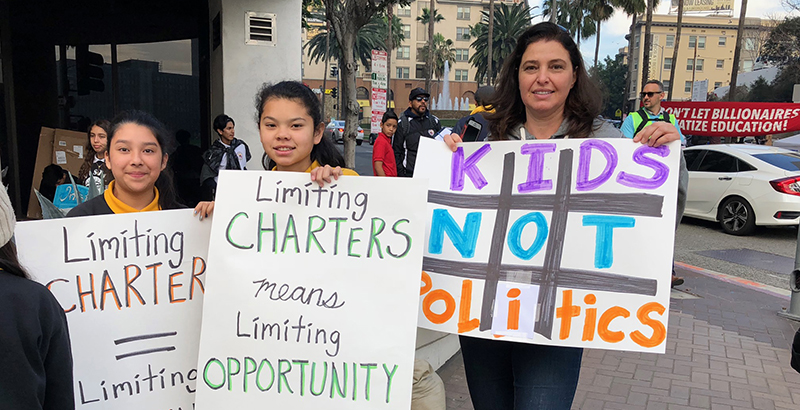Just when you thought the Biden Administration had bottomed out, now they are coming after charter schools
Click here to submit comments by April 13th (UPDATE: the deadline is now Monday, April 18) to the US Department of Education, letting them know you oppose new rules being considered by the Biden Administration that would negatively impact charter schools.
The following are several specific impacts of the proposed rules (RGF’s Comments follow the bullets):
- Through a new prescriptive definition of “community impact”, the Department seeks to limit funding to ONLY charters that show they aren’t reducing district enrollment. This requirement empowers grant reviewers to veto state and local decisions to authorize schools by denying applicants funding based on whether the reviewers, who typically are not part of these communities, agree that community needs are met.
- The new definition of “community impact”, puts the interest of the district above the interest of students and families, and does not consider the quality of the open seats, therefore restricting minority and low-income students to open seats. These students not only deserve an open seat; they deserve a high-quality seat.
- This proposal exhibits a stunning lack of recognition of current realities. Two years into the COVID-19 pandemic, our nation’s children are in crisis. Widespread school closures produced dramatic learning losses, a decline in college enrollment, and a rapid rise in mental-health challenges experienced both by adults and students that are profoundly challenging families and public education. During this time more, rather than fewer, parents have sought to enroll their children in high-performing public charter schools.Overall, the rules make no mention of how any of these new hurdles will address learning loss or improve student achievement for the most vulnerable student populations. In fact, “academic achievement” is only mentioned twice in the text of the rule and not in a manner that shows how any requirement will improve such achievement.
- The rules would require applicants to propose racially and economically diverse models, without a definition of diversity and regardless of community needs. This will disadvantage urban areas, culturally affirming school models and models serving indigenous populations. These are the very kind of schools that communities of color have been asking for, and that research supports as effective for historically underserved students
- The regulations also shift power to the districts, and away from families, by mandating that charters partner with districts to receive priority points and funding in state competitions. There is no corresponding obligation or expectation that district schools invite, pursue, or be open to such cooperative arrangements. This requirement places the power of a community’s educational choices right back in the hands of the district they opted out of, regardless of how willing the charter is to build a partnership.
- The number of new requirements on top of an already complex program will discourage smaller and more innovative models. These models are the very schools that are often led by leaders of color and by leaders from the community they are seeking to serve.
The Rio Grande Foundation is a public policy think tank based in Albuquerque, New Mexico and that works on public policy issues throughout the State.
New Mexico has historically been one of the very worst performing states in the entire country, consistently ranking 49th of 50th on various indices of school performance. That was BEFORE students lost a full year in their classrooms during the Pandemic. Since then, further data has indicated that New Mexico students have fallen even further behind.
Charter schools are the only form of school choice available to most New Mexican students. Charters have performed at higher levels than traditional public schools and provide unique options for students in this uniquely diverse state. Many of the highest performing schools in New Mexico are charter schools.
These proposed regulations provide a number of unnecessary hoops for New Mexico families who wish to purse charters. The regulations would also have a negative impact on the ability of charter schools to be formed and to provide the unique educational options that simply aren’t available in traditional public schools.
I urge you to reject these regulations that will negatively impact charter schools in New Mexico and across the nation.

